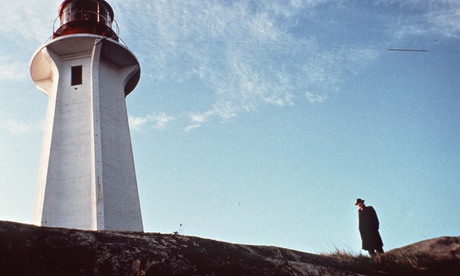
If there's one thing that Stephen King understands above all others – above spider demons and psychic communication lines and psychopathic fans – it's addiction. He's shown that again and again, with characters demonstrating that what they need isn't always the same as what they want. In The Shining, Jack wants to write, to look after his family; he needs the drink that he's trying to escape from. In Misery, Annie's wants – her basic desires – turn nasty when they become needs (as, frankly, do Paul's). It's a recurring theme. So when King calls a novel Needful Things, you know he's not entering the territory of desire with anything resembling a soft touch.
In lovely, sunny, not-at-all terrifying Castle Rock, the titular shop is opened by Leland Gaunt. It's essentially a knick-knack shop that sells one-off items, and – for the customers of the shop – they just so happen to be the exact thing that they've always wanted to buy. The things are cheap, as well; well below their actual street value. The denizens of Castle Rock can't believe their luck; surely there must be a catch? This is Stephen King. Of course there is.
Leland Gaunt – being a Very Bad Man, in the King tradition of Very Bad Men – wants tricks to be played on other people who live there. That's the deal: you get what you've always wanted – or, as Gaunt would have it, needed – in exchange for some small physical act that will cause somebody else minor distress. On paper, it seems like a no-brainer. But these apparently mild jokes – smearing somebody's bed-linen with mud, for example – will have a domino effect, and the reactions to the these acts will be far more powerful than the initial action itself.
It's a neat idea, really, because everybody has something that they want to the point of needing it. The concept plays on the nature of dreaming: of there being something that's seemingly out of reach, until we're asked exactly how far we would go to achieve that thing. For most people, in reality, it's likely to be something less tangible than a baseball card or some magic sunglasses that make you think you're having sex with Elvis Presley. And that's where the heart of the story comes in: Polly Chalmers, in constant pain due to her crippling arthritis, wants relief for her pain. Simple as that. It's the tension between her and her boyfriend Alan Pangborn, the sheriff of Castle Rock, who thinks that there's something deeply fishy about Gaunt, that drives the novel along. Even as King shows us these domino effects again and again, as increasingly malicious tricks are played on townsfolk who take their reactions to terrifying, murderous extremes, there's a real heart here. Polly is in pain; Alan wants her to feel better, but he doesn't trust the source of her relief.
Against what's apparently the consensus, I really like this novel. I think it's fun and playful, and while we can bicker endlessly about whether King is actually a horror writer or not, it manages to be both horrifying and – somehow – darkly funny, all at the same time. King said it was a satire of 80s Reaganite greed, and that's obvious upon rereading. There's no limit to how far these people will go for what they need, even after they've seen the effect that Gaunt and his shop has on their friends and families. People are desperate for more and more, and they want it now, hang the consequences. (Were King writing this now, I suspect that Gaunt would be written as a stand-in for Jeff Bezos.) Yes, it's got its problems: the structure is a little repetitive, as though King was having so much fun with the chainof chaotic events which form the novel's spine that he included a few too many. Pangborn is a little weak, and perhaps Gaunt too ineffective as a traditional King baddie to really make you worry; there are a number of rather awkward stereotypes in the novel; and the end is pretty terrible, being a mish-mash of other Epic King Novel endings, seemingly because – I'm guessing – King couldn't find another way out.
Or, maybe, that's the ending he wanted. Maybe that's the crucial thing. He was past his addictions when he wrote this – it was the first book he wrote after kicking them – and maybe the sheer catharsis of it should be seen as enough. Blunt metaphor time, but prior to this King had wanted things to the point of needing them, and they were ruining everything, hurting those he loved. After he was clean? He could see that it was better to want than need, simply because the want can sit there, untouched. A need? That's when things turn – as King shows us again and again – really nasty.
Connections
Castle Rock appears in so many King books and stories it's hard to spot all the references. While this was billed as "the last Castle Rock book", it's anything but – the town crops up again and again, most recently in Under the Dome. But that's not all: Gaunt's cocaine-fuelled hired hand in this novel is Ace Merrill, last seen in The Body; Polly's aunt, Evie, was a character in Cujo; Alan Pangborn was a major player in The Dark Half; and at the end of the novel, Gaunt goes off to set up shop in Junction City, as seen in the short The Library Policeman.
Next time: We'll all be handcuffed to the bed and forced to read Gerald's Game …

